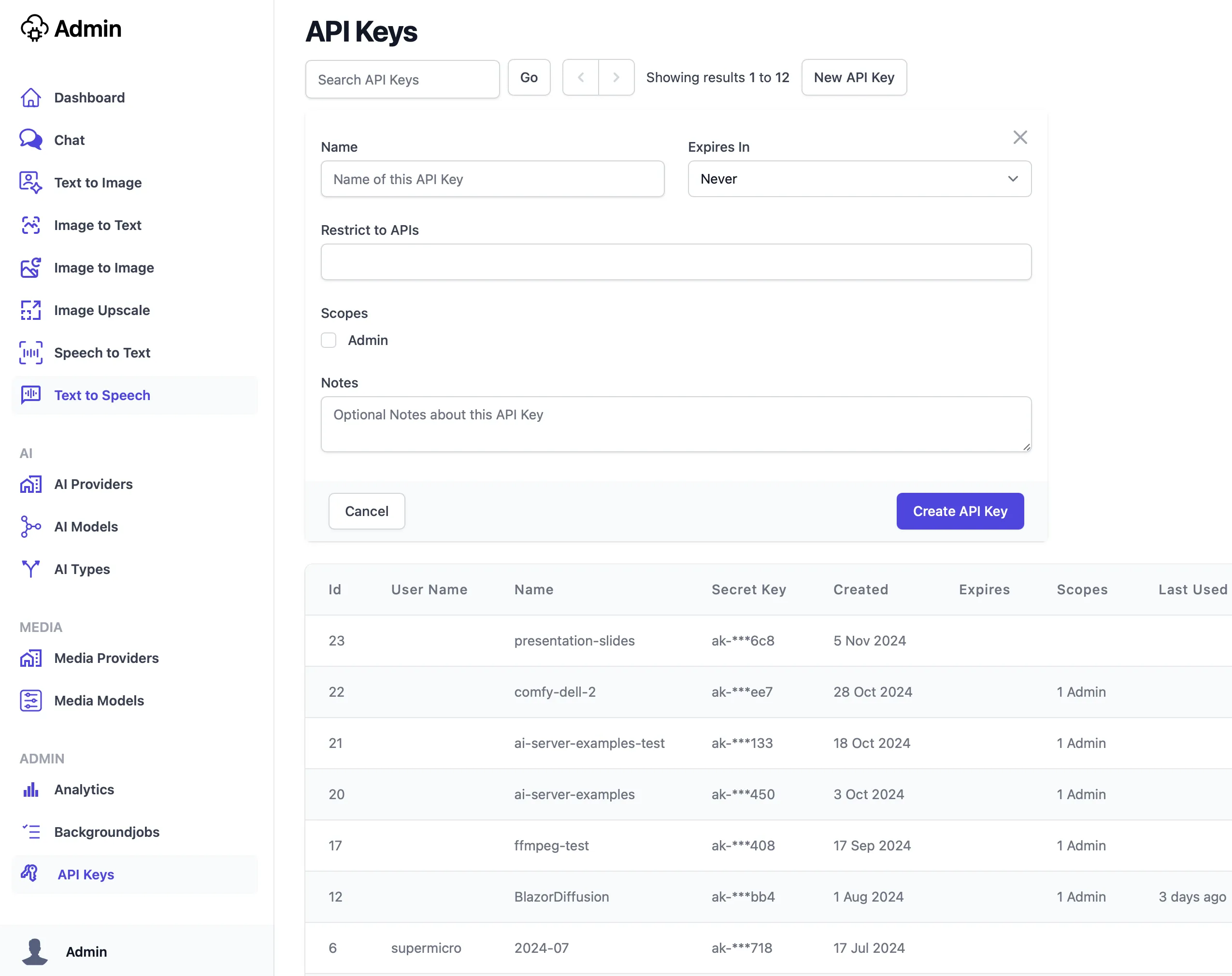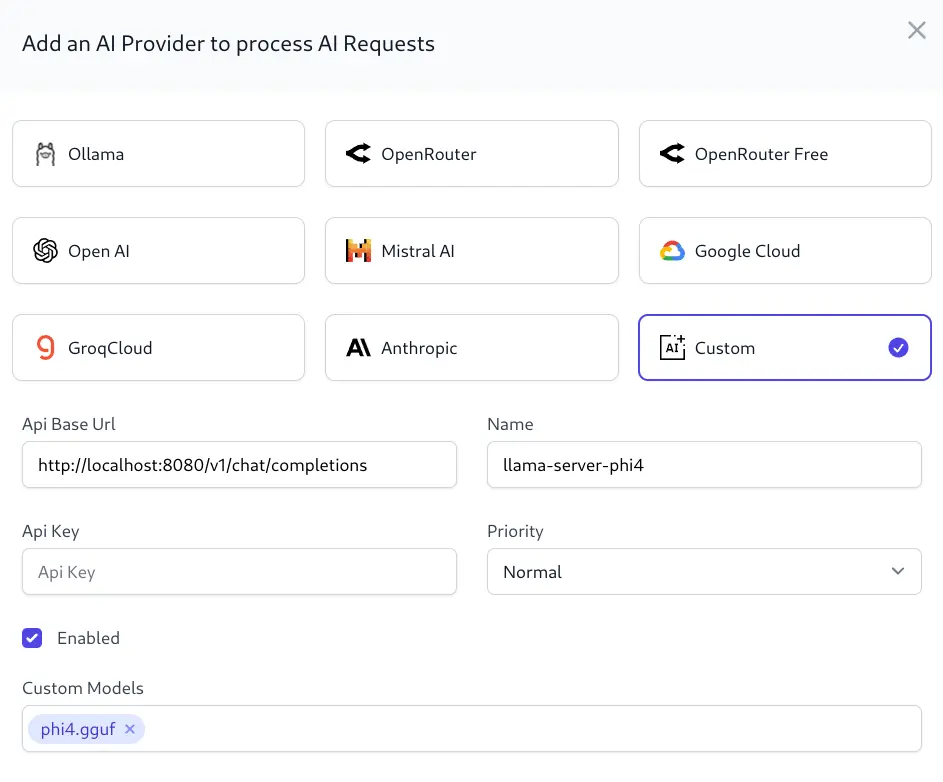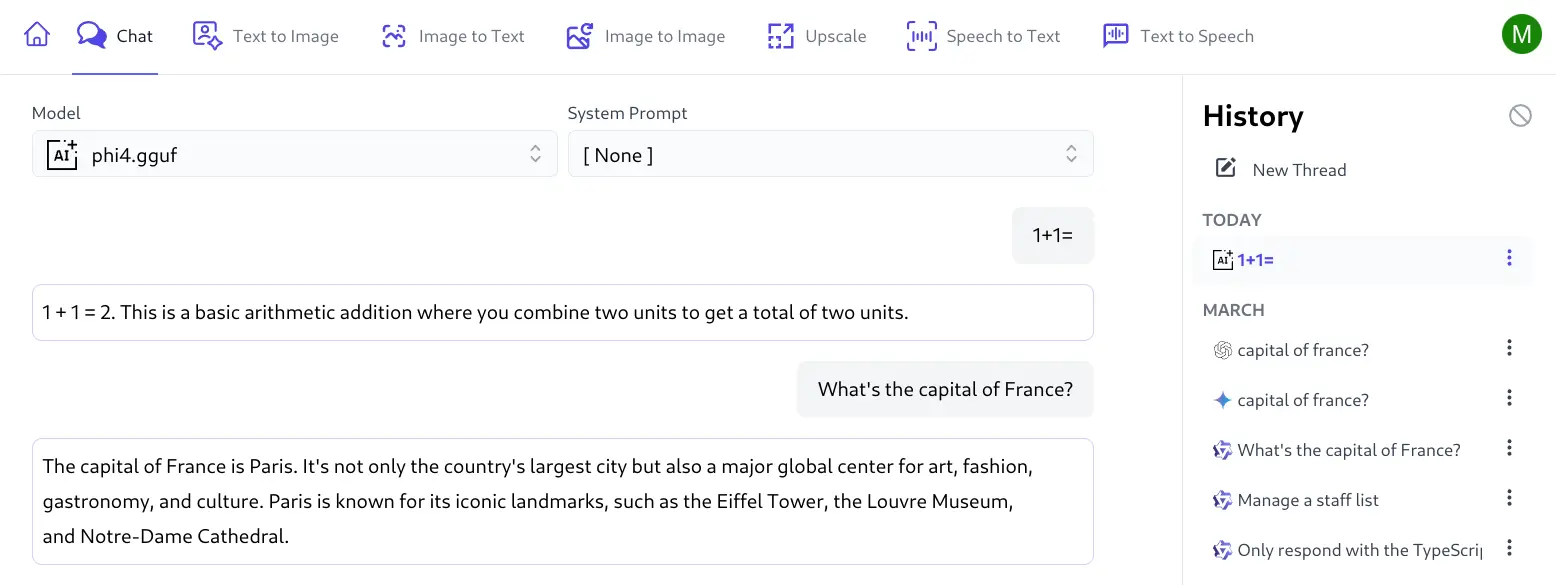AI Server can be configured in several ways:
- install.sh Script: Run the
install.shscript to set up the AI Server and ComfyUI Agent. - .env File: Update the
.envfile with your API keys and run the AI Server for the first time. - Admin Portal: Use the Admin Portal to add, edit, or remove AI Providers and generate AI Server API keys.
Running the Installer
The install.sh script is the quickest way to get AI Server up and running with the default configuration. This is ideal for local development and testing.
To run the installer:
git clone https://github.com/ServiceStack/ai-server.git
cd ai-server
cat install.sh | bash
The installer will prompt you to configure your AI Providers and optionally add the ComfyUI Agent.
.env Configuration
The installer populates the .env file with the choices you made during the installation script. You can also manually configure the .env file with your API keys and settings.
OPENAI_API_KEY=<Your OpenAI API Key>
ANTHROPIC_API_KEY=<Your Anthropic API Key>
OPENROUTER_API_KEY=<Your OpenRouter API Key>
MISTRAL_API_KEY=<Your Mistral API Key>
GOOGLE_API_KEY=<Your GoogleCloud API Key>
GROQ_API_KEY=<Your Groq Cloud API Key>
AUTH_SECRET="p@55wOrd"
ASSETS_BASE_URL="http://localhost:5006"
After these values are set in your .env file, you can run the AI Server for the first time via docker compose:
docker compose up
This will perform an initial setup, saving providers configuration in the SQLite database. From here, you can manage your AI Providers via the Admin Portal.
INFO
The default credentials to access the Admin Portal are p@55wOrd, this can be changed in your .env file by setting the AUTH_SECRET key.
Using the Admin Portal
The Admin Portal provides a more interactive way to manage your AI Providers after the AI Server is running.
To access the Admin Portal:
- Navigate to http://localhost:5006/admin.
- Log in with the default credentials
p@55wOrd. - Click on the AI Providers tab to view and manage your AI Providers.
Here you can add, edit, or remove AI Providers, as well as generate API keys for each provider.
AI Server supports the following AI Providers:
- OpenAI: OpenAI Chat API
- Anthropic: Anthropic Claude API
- Google: Google Cloud AI
- OpenRouter: OpenRouter API
- Mistral: Mistral API
- GROQ: GROQ API
- Ollama: Ollama API
Media Providers can also be configured in the Admin Portal. These include:
- ComfyUI: ComfyUI Agent
- Image Generation
- Text-to-Speech
- Speech-to-Text
- Video & Image Processing
- Replicate: Replicate API
- Image Generation
- OpenAI: OpenAI API
- Image Generation
- Text-to-Speech
Register AI Providers
To let AI Server know about your API Providers or self-hosted instances by creating them in the AI Provider section where you can use Custom AI Provider type to register any OpenAI Chat compatible endpoint, e.g:
After registering AI Providers you can try to use them in the Chat UI:
Create API Keys for your Apps
After testing the llama-server instance is working with the Chat UI it's time to create API Keys for all your Apps so they can access AI Servers APIs with the API Keys UI:

Here you can create new API keys, view existing keys, and revoke keys as needed. Keys can be created with expiration dates, and restrictions to specific API endpoints, along with notes to help identify the key's purpose.
It's recommended to use a different API Key per App so they can be monitored and analyzed separately.
With a valid API Key in hand your App's can use AI Server's DTOs with ServiceStack generic service clients to enable typed integrations in 11 different languages.
Stored File Management
AI Server stores results of the AI operations in a pre-configured paths.
- Artifacts: AI generated images, audio, and video files, default path is
App_Data/artifacts. - Files: Cached variants and processed files, default path is
App_Data/files.
These paths can be configured in the .env file by setting the ARTIFACTS_PATH and AI_FILES_PATH keys.
Custom Definitions
AI Server's knowledge is limited to the AI Provider and Model types and definitions defined in its /data definitions.
These definitions are merged and can be extended with custom definitions you can create in your /App_Data/overrides/ folder, e.g:

